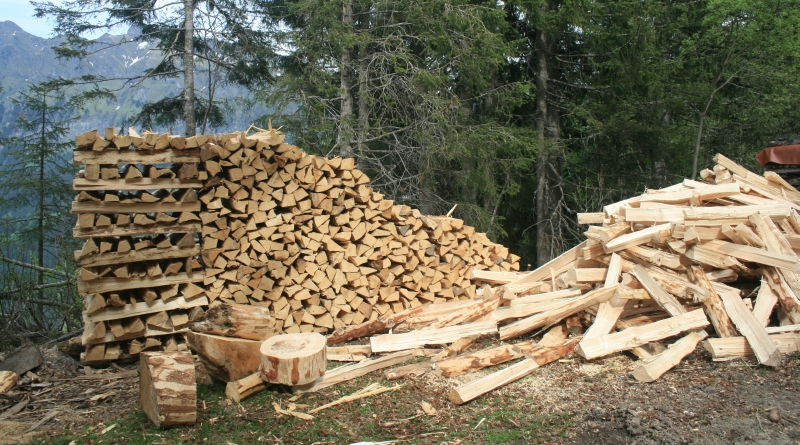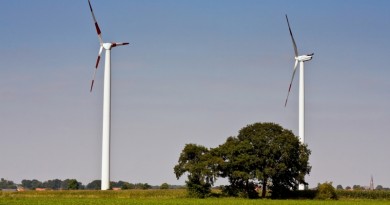Bioenergy
Biomass is renewable energy source that consists of many animal and plant products. It can be directly transformed by combustion in energy and produce water steam for industry and household’s heating and to gain energy in smaller thermal power plants. So far the most advanced chemical conversion of biomass is fermentation to alcohol. Biogas as the result of fermentation without presence of oxygen consists of methane and carbon and can be used as fuel, and other modern procedures of energy biomass include pyrolysis, gasification and getting hydrogen. Main biomass advantage relating to fossil fuels is less damaging gases emission as well as less waste waters. Supplementary advantages are taking care of the waste and its exploit as well as leftovers from agriculture, forestry and wood industries, decrease of energents importing, investment in agriculture and rudimental areas and increasing the safety of energy’s distribution. Predictions are that share of biomass till the end of this century will be between 30% and 40% of consumed energy. Sweden for instance, in 1998 got 18% of energy using biomass, and Finland 10%. According to EU’s documents it is predicted that production of the energy gained from biomass in relation to other renewable sources will be in year 2010 about 73%. Ukraine has installed capacities of 320 MW for gaining electricity with the use of biomass.
WOOD’S ENERGY
European Union has 58% of primary energy gained from renewable energy sources that are coming from wood. That large part is traditional exploit of forest’s potentials. France produces most primary energy from wood. In year 2000 France had 9.8 Mtoe of energy gained on this way. Sweden (8.3 Mtoe) and Finland (7.5 Mtoe) are also representing significant use of wood’s energy. Although thermal consumption (heating households, heating water) represents main part of energy’s consumption, small part of wood’s energy transform itself in to an electrical energy as well. European Union in 1999 had 17.3 TWh of electrical energy produced on this way. Plan is getting 100 Mtoe from wood’s energy and actual trend shows 62 Mtoe of realized energy. Most important transformation is in to electrical energy. Read more about biomass: Benefits of biomass.
BIOGAS
Between 1990 and 2000 number of bio-gas power plants constantly increased. Today is about 3000 power plant in Europe, with also 450 garbage disposals which are valorizing biogas. Year production of those installments is about 2304 ktoe, and that is about 5% totally manufactured Europe’s biomass energy. United Kingdom is the leading manufacturer of useful energy gained from biomass with 897 ktoe or 39% of total European production. That energy is gained from more than 400 installments. Germany is on second place with 525 ktoe in year 2000. Germany can thank its big progress to biogas gained from agriculture. In year 2000, 400 of those installments were involved, and now its number is about 1050. Third place belongs to France with 167 ktoe of year’s production. European Union’s goal is 15 mtoe produced with biogas. In order to achieve that, year growth of at least 30% is required.
BIO-FUELS
Bio-fuels are consisting of two different sectors: ethanol and bio-diesel fuels: ethanol is used as benzene’s motor addition, and biodiesel as diesel motor’s addition. Some motors permit using the pure ethanol or biodiesel, but that is limited with country regulative. Amount of produced ethanol had yearly increase from 47.500 tons in 1993, up to 191.000 tons in 2000. Main producer of this fuel is France with 91.000 tons produced in year 2000. Spain is on second place with 80.000 tons, and the next one is Sweden with 20.000 tons. Diesel’s producing has increased even more. It has growth from 55.000 tons in 1992 up to 700.000 tons in 2000. France here also leads the way with 47% or 328.000 tons. Germany is on the second place with 246.000 tons. Only three more European Union countries are producing biodiesel fuels: Italy (78.000 tons), Austria (27.600 tons) and Belgium (20.000 tons). European Union’s plan is to produce 17 millions tons of biofuels till the year 2010. According to the momentary data this plan won’t be realized, because only 11.7 millions tons of biofuel will be produced. Full article about biofuels: Biofuels.



